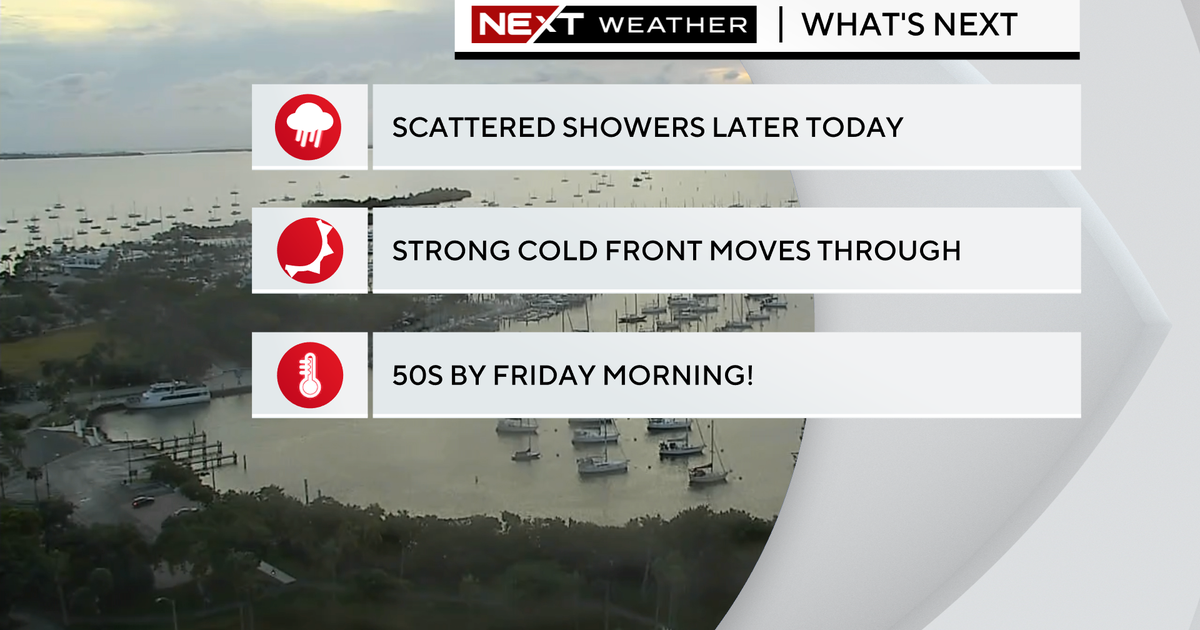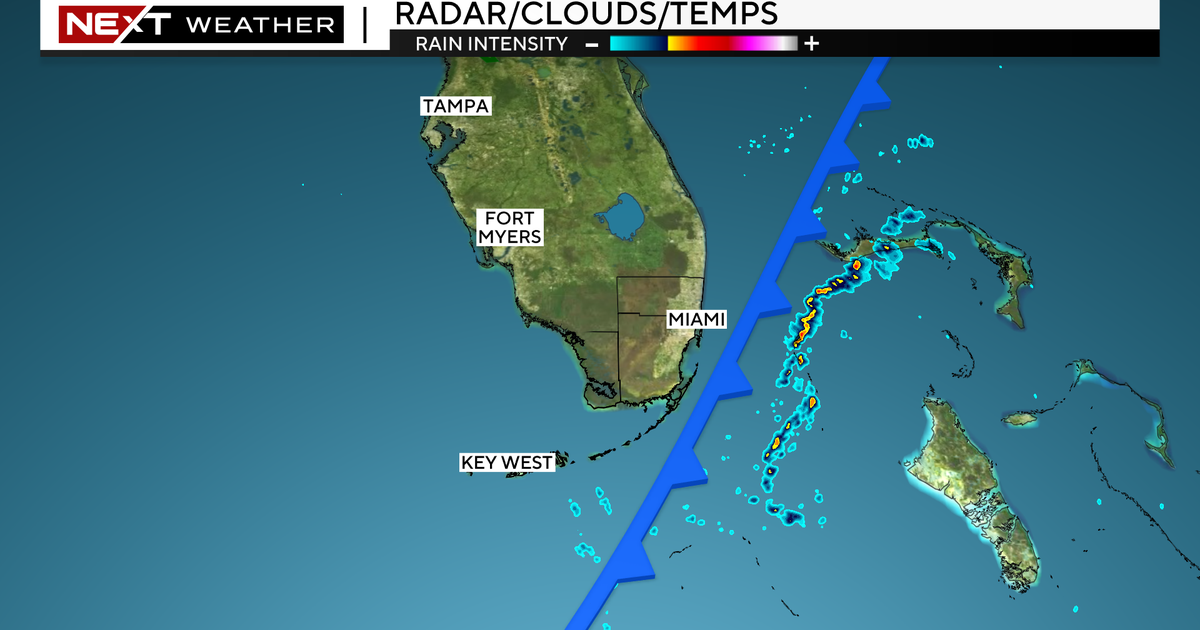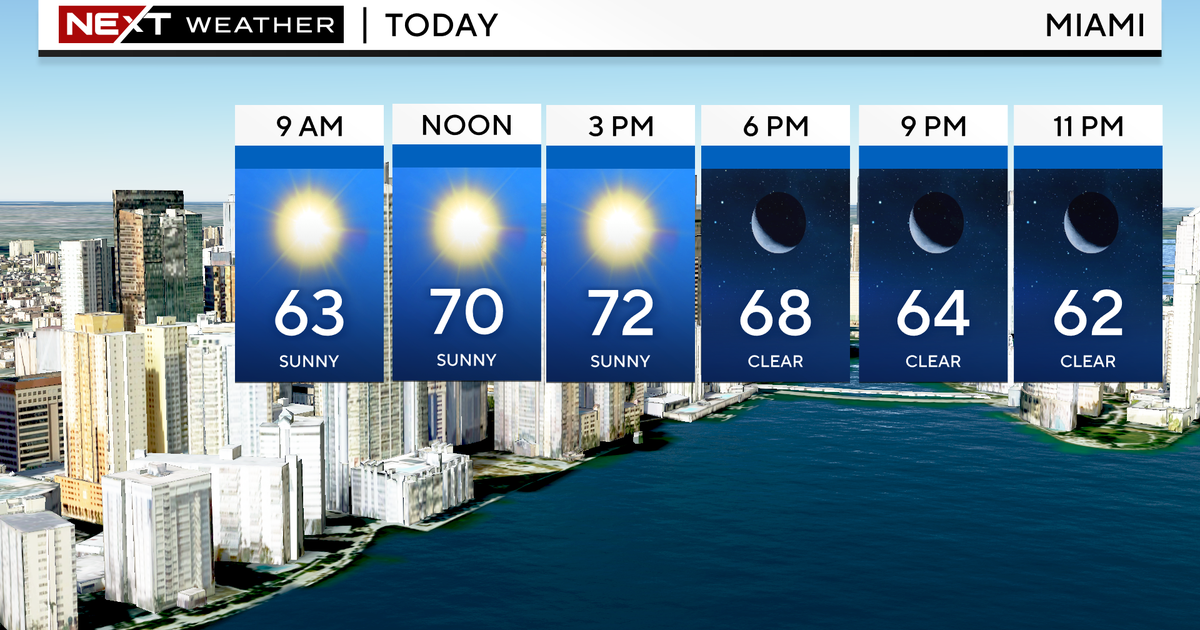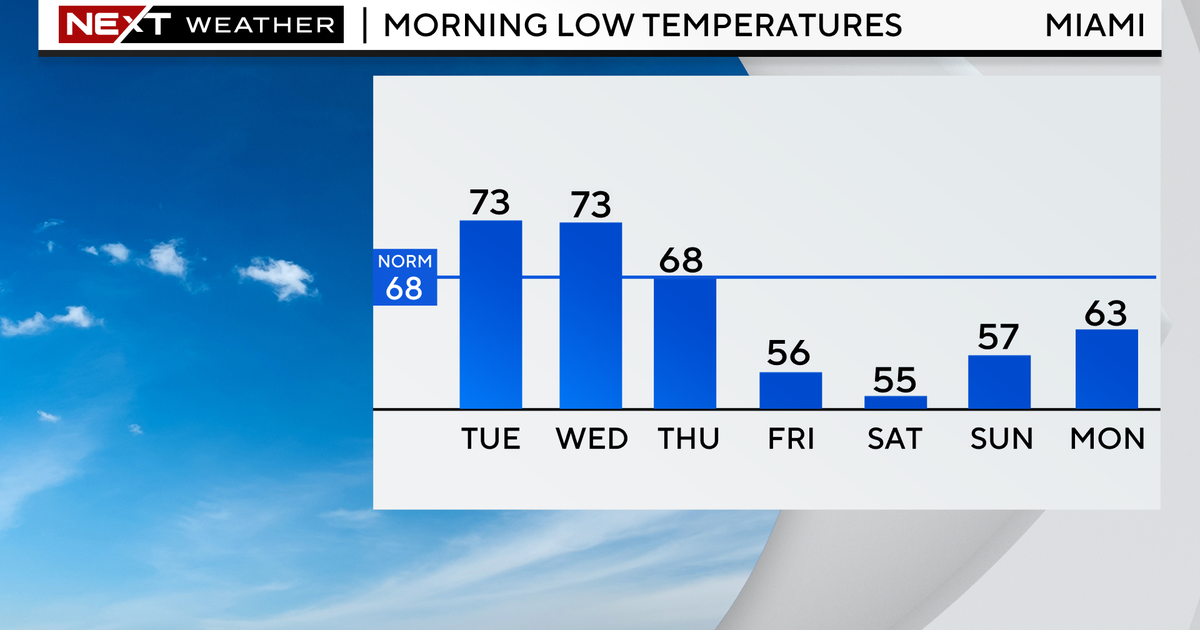South Florida summer hot weather health concerns
MIAMI - South Florida is feeling the heat.
Wednesday will be one of the hottest days of the week with highs soaring to the low to mid-90s in the afternoon. Record heat is possible as the CBS Miami Next Weather team is forecasting a high of 94 degrees in Miami, the current record is 94 set back In 2020.
Afternoon temperatures are forecast to remain in the low 90s with "feels like" temps in the low 100s.
With our steamy summer weather, there are health concerns associated with the heat, including heat exhaustion and heatstroke.
Symptoms of heat exhaustion include headache, nausea, dizziness, weakness, elevated body temperature and decreased urination. Heat exhaustion is often seen in people working or performing fitness activities outdoors for prolonged periods of time in hot weather. If someone suspects they have heat exhaustion, get out of the sun and ideally into a cool, air-conditioned space. Cold compresses and cold drinks will help, too. If the person appears to be confused, fainting or getting worse, call 911.
Heatstroke is when a person's body temperature rises as a result of exposure to extreme heat. It is a medical emergency. People with heatstroke have body temperatures above 103 degrees Fahrenheit. Their bodies stop being able to cool effectively, and they may become confused and dizzy. They have changes in their heart rate, and they may faint. These individuals need immediate cooling and emergency medical care.
Heat exhaustion can progress to heatstroke.
In addition to the direct health effects, high temperatures can also put strain on the heart and lungs. The combination of heat and cardiovascular disease was either the direct or contributory cause in 1 in 4 heat-related deaths since 1999, according to data from the US Environmental Protection Agency.
So who's at the highest risk for heat related health issues.
The elderly have a lower capacity to adapt to changes in body temperature and are also at higher risk of dehydration. The same goes for young children, who have less physiological reserve and may not be able to reliably report how they are feeling.
Children may also want to play outside, even if they are overheating. And they may forget to drink fluids. So, make sure they stay hydrated and consider setting a time limit of 15 to 20 minutes outside in the heat, at which point they must come in and cool down.
Never leave kids or pets in a car. The inside of cars heats up rapidly, and sadly, over 38 children die in overheated cars every year in the US. Even if you are running a short errand, take children with you and don't leave them unattended in a closed car.
If you have to be out during the heat of the day, try to stay in the shade. If you like to take walks or run, do them in the early mornings or evenings. Make sure to use sun protection and drink plenty of fluids. If you start developing any symptoms, like headaches, dizziness, muscle cramps, lack of energy or tiredness, get out of the sun and go inside to cool, air-conditioned places immediately.




